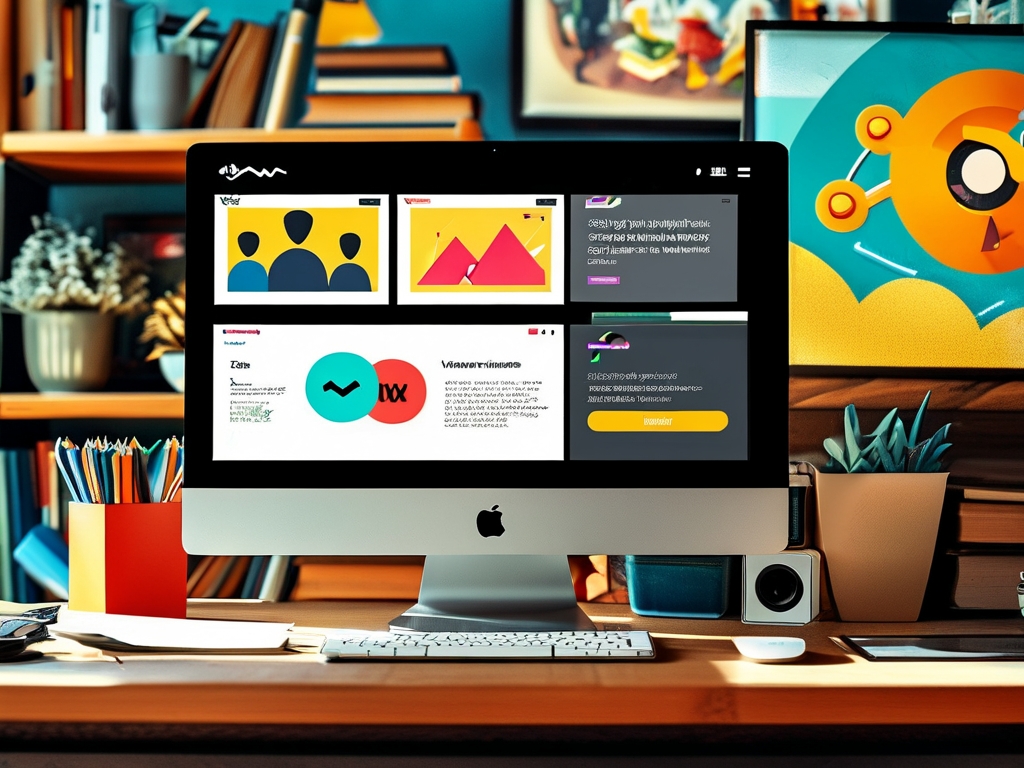The frontend development landscape has evolved dramatically over the past decade, making technical interviews more challenging than ever. Whether you're a junior developer entering the field or a seasoned professional aiming for a senior role, acing a frontend interview requires a mix of technical expertise, problem-solving skills, and effective communication. This article explores actionable strategies to help you prepare for and excel in frontend interviews.

1. Understanding the Interview Structure
Frontend interviews typically consist of multiple rounds:
- Technical Screening: A preliminary assessment via coding platforms like HackerRank or Codility, focusing on core JavaScript, CSS, and framework-specific questions.
- Live Coding Sessions: Real-time problem-solving using tools like CodePen or CoderPad, where you’ll build UI components or debug existing code.
- System Design: For senior roles, discussions about scalable architectures, performance optimization, or designing complex applications.
- Behavioral Interviews: Questions about teamwork, project challenges, and career goals.
Understanding this structure helps tailor your preparation. For example, junior candidates should prioritize coding fundamentals, while senior developers must hone system design and leadership narratives.
2. Core Technical Skills to Master
HTML/CSS Fundamentals
Despite the rise of frameworks, interviewers still test foundational knowledge:
- Semantic HTML: Use
<article>,<section>, and ARIA roles appropriately. - CSS Layouts: Master Flexbox, Grid, and responsive design principles.
- Cross-Browser Compatibility: Address rendering differences and polyfill strategies.
A common interview task is to recreate a responsive navbar or center a div vertically/horizontally. Practice these without relying on frameworks like Bootstrap.
JavaScript Proficiency
JavaScript remains the backbone of frontend interviews. Key topics include:
- Closures and Scope: Explain lexical scoping or solve problems involving closures.
- Asynchronous Programming: Use Promises, async/await, and handle race conditions.
- Prototypal Inheritance: Differentiate between classes and prototypes.
Expect algorithmic challenges, such as implementing debounce/throttle functions or reversing a linked list.
Framework-Specific Knowledge
If applying for a React, Angular, or Vue role, focus on:
- Component Lifecycles: Explain useEffect (React) or ngOnInit (Angular).
- State Management: Redux, Context API, or Vuex workflows.
- Performance Optimization: Memoization, lazy loading, or virtual DOM mechanisms.
Build small projects (e.g., a todo app) to demonstrate framework mastery.
3. Problem-Solving and Coding Challenges
Frontend interviews often include LeetCode-style problems or DOM manipulation tasks. Strategies for success:
- Break Down Problems: Verbally outline your approach before coding. Interviewers value structured thinking.
- Write Clean Code: Prioritize readability—use meaningful variable names and avoid nested callbacks.
- Test Edge Cases: Handle empty inputs, invalid data, or extreme viewport sizes.
For example, if asked to implement a pagination component, discuss accessibility (keyboard navigation) and mobile responsiveness upfront.
4. Behavioral and System Design Preparation
Behavioral Questions
Use the STAR (Situation, Task, Action, Result) method to answer questions like:
- “Describe a time you resolved a conflict in your team.”
- “How do you prioritize tasks under tight deadlines?”
Highlight collaboration, adaptability, and user-centric decision-making.
System Design for Frontend
Senior roles may require designing systems like a real-time chat app or a dashboard with live data updates. Key considerations:
- State Management: Centralized vs. localized state.
- API Integration: REST vs. GraphQL, error handling, and caching.
- Performance: Code splitting, lazy loading, and minimizing re-renders.
Practice sketching architecture diagrams and justifying your choices.
5. Mock Interviews and Feedback
Simulate real interview conditions:
- Use platforms like Pramp or Interviewing.io for peer practice.
- Record yourself explaining code—this improves clarity and confidence.
- Seek feedback on GitHub portfolios or take-home assignments.
6. Staying Updated with Trends
Frontend tools evolve rapidly. Demonstrate curiosity by discussing:
- Modern CSS features (e.g., container queries, CSS-in-JS).
- Emerging frameworks (Svelte, Qwik) or build tools (Vite, Turbopack).
- Web Vitals and Core Web Metrics for SEO and user experience.
Succeeding in frontend interviews demands a balance of technical depth, problem-solving agility, and soft skills. By methodically preparing for coding challenges, system design discussions, and behavioral questions, you’ll stand out in a competitive job market. Remember, consistency is key—dedicate time daily to coding practice, mock interviews, and learning industry trends. With persistence and the right strategy, you’ll transform interview anxiety into confidence and land your dream frontend role.









